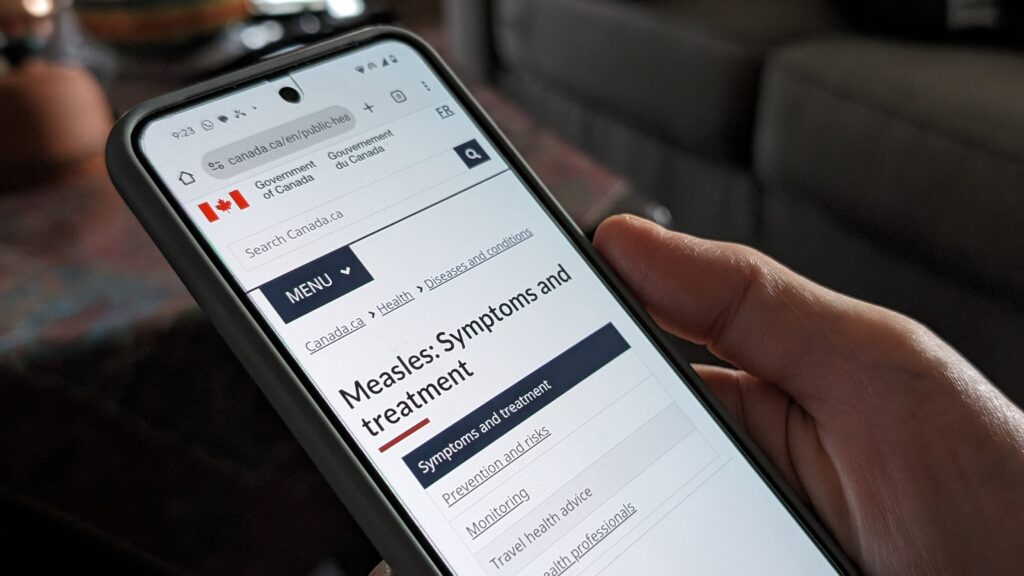
Listen to the full story here:
Dropping vaccination rates have exacerbated the spread of measles in Canada – with at least 40 cases confirmed country-wide in 2024, a measles outbreak is now “inevitable,” an infectious disease expert warns.
Since the beginning of this year, the number of reported cases in Canada has been three times higher than in all of 2023.
“Measles is probably the most infectious disease ever,” says Dr. Alon Vaisman, an infectious disease prevention and control expert at the University Health Network (UHN). “The virus itself is not as deadly as most of the other viruses we commonly talk about, but because it’s so highly transmissible, it makes its way through the population and finds somebody who will have a bad outcome.”
What is measles?
According to the World Health Organization (WHO), measles is a respiratory illness that easily spreads through the air. Common symptoms include feverish rash, runny nose, cough and eye irritation.
“The virus itself can often be mild, but it’s the complications that inevitably will occur that we want to prevent,” says Vaisman.
He adds that individuals born before the introduction of the measles, mumps, and rubella (MMR) vaccine in 1969 should be immune because they would have already been infected as children. Those born after were most likely vaccinated as children. Fully vaccinated individuals are almost entirely immune to measles.
Those uncertain of their vaccination status can take an antibody test at a local public health unit.
Why is it a concern?
Currently, the most vulnerable are children, as the virus can be fatal to them. That is why WHO recommends administering the vaccine to children in two doses starting at nine months of age in areas where the virus is common and at 12 months of age in uncommon areas.
Vaisman warns that vaccination rates have been on the decline, especially in the past few years, as a result of the pandemic, which led to the resurgence of the anti-vax movement.
According to recent data from the Angus Reid Institute, Canadians’ opposition to mandatory child vaccination has risen from 24 per cent in 2019 to 38 per cent in 2024.
“The shocking thing is that young people nowadays do not believe in vaccination like they used to; [the same] young people that need to be vaccinated and make sure that they get their kids vaccinated.”
Although most fatal to children, immunocompromised and unvaccinated adults are also likely to suffer from measles and fall victim to its consequences. That is why Vaisman insists that everyone should take this seriously and get vaccinated.
“People forget that it can cause complications, it can cause death, it can cause bacterial infections and neurological complications. [They] forget that every year thousands of children across the world die of measles in low-income settings as a result,” he adds.
What do TMU students think?
Despite the concerning circumstances, the future may be hopeful for Gen Z as TMU students want and encourage vaccinations.
“I’m pretty sure I’m vaccinated, and I think [vaccines] are incredibly important. I think the misinformation about vaccines is really dumb. Just get them. It’s not a government chip,” says fourth-year social work student Cassandra Yurich.
“If there is something you can put in your body to make you healthier, I don’t see why you wouldn’t do it,” says Stéphane Normandeau, fourth-year media production student. “When I was growing up, there was chicken pox. The whole theory was that if your kid has chicken pox, let’s get all of our kids to play together so everyone becomes immune, but by the time my sister was born two years later, it was just like ‘vaccinate her.”’
Mana Hosseini is a fourth year journalism student and a storyteller for On The Record, winter 2024.

